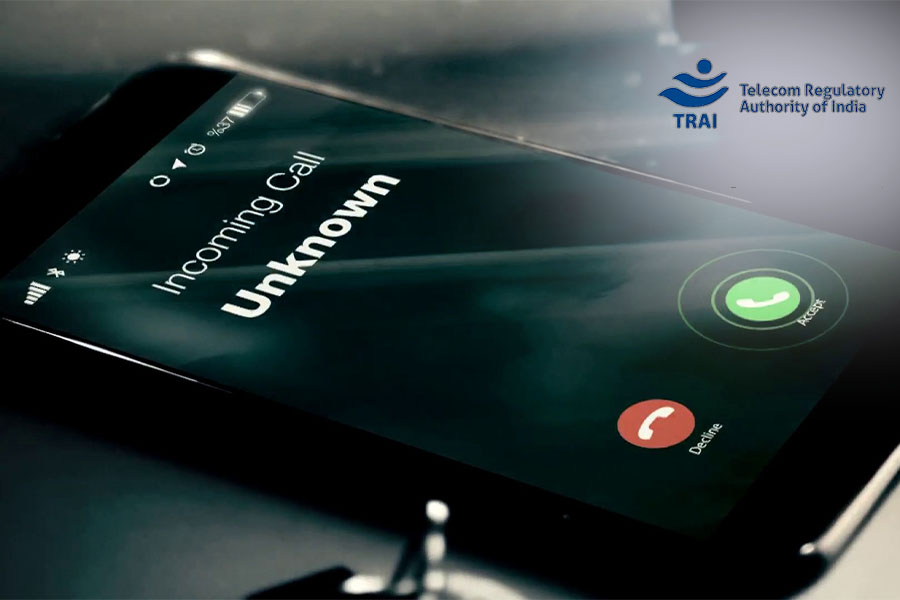
The Telecom Regulatory Authority of India (TRAI) recently announced a new set of rules for the country’s telecom companies, including AI spam filters, caller IDs, and a ban on promotional calls. This move is expected to have a notable impact on bringing down call-based fraud and harassment cases in India. And we definitely think Nepali telcos should adopt this system as well.
India TRAI AI spam filters: Overview
TRAI is the primary regulatory authority of India’s massive telecommunications sector. It has been working to combat fraudulent and spam calls and ensure consumer safety. Back in March, it imposed regulations regarding Unsolicited Commercial Communications (UCC). And now, the organization has imposed a new set of rules that kicked off on May 1, the first of which is the AI spam filter.

TRAI has mandated all telecom companies in India to implement AI spam filtering mechanisms for calls and SMS. Telecom giants like Jio and Airtel have already complied while others are expected to follow suit soon. This system will analyze patterns in call records and pool from the giant telecom databases to mark certain calls as spam.
It is similar to how spam filtering works in SMS. Fake calls meant to trick users, fraudulent calls meant to extort money, impersonations, and annoying sales calls will all be identified by the system and blocked.
- Also Read:
- India launches CEIR mobile tracking system while Nepal’s MDMS remains iffy
- NTA finally implements MDMS in Nepal: Here’s all you need to know
- Forget about MDMS, Laptop Device Management System is what Nepal needs
Caller ID and other regulations
Alongside the AI filters, TRAI also guided Indian telcos to implement “Caller ID” systems that show the caller’s name alongside their picture (if available). Something similar already exists in third-party apps like “Truecaller“. But implementation pan-India is going to be much more effective at stopping impersonations and spam calls.

On top of this, TRAI has also requested a ban on all kinds of promotional calls on 10-digit numbers. When implemented, daily sales calls and promotional offers won’t be a nuisance anymore.
Except for the AI spam filter, the rest of these features aren’t going to be implemented just yet. But users in India can still activate DND (Do Not Disturb) on their cell numbers to block telemarketing and promotional messages from certain categories without messing with the important stuff like bank alerts or bill notifications.
What’s the state of spam call filter in Nepal?
Though sales calls are pretty common in Nepal, we don’t get as many scam calls as in India. Most promotional marketing calls—while annoying—are usually harmless. But there have been instances of international call scams like “Wangiri”. Under this, scammers would give one-ring missed calls from international numbers, and if you dial them back, it would cost you a lot of money. Thus, such spam filters do have a role in Nepal.
AI spam filters: Final thoughts
India has had a massive problem with such spam calls, so it is only logical for TRAI to crack down on it via some robust regulations. That being said, we’ll have to wait and see how effective this will actually be. By contrast, Nepal doesn’t have such an endemic, so spam call laws are much more lax here.
Still and all, NTA should be closely working with Nepal’s telecom companies to block fishy numbers as a defensive mechanism. And we can learn from India’s implementation of such spam call filtering systems and model a similar one suitable for Nepal.
- Meanwhile, check our picks for the best phones under INR 20,000 / USD 300







![Best Gaming Laptops in Nepal Under Rs. 250,000 (रु 2.5 Lakhs) [2025] Best Gaming Laptops Under 2.5 lakhs in Nepal [Feb 2025 Update]](https://cdn.gadgetbytenepal.com/wp-content/uploads/2025/02/Best-Gaming-Laptops-Under-2.5-lakhs-in-Nepal-Feb-2025-Update.jpg)
![Best Gaming Laptops in Nepal Under Rs. 120,000 (रु 1.2 Lakhs) [2025] Best Budget Gaming Laptops Under Rs 120000 in Nepal 2025 Update](https://cdn.gadgetbytenepal.com/wp-content/uploads/2025/05/Best-Budget-Gaming-Laptops-Under-Rs-120000-in-Nepal-2024-Update.jpg)
![Best Laptops Under Rs. 80,000 in Nepal [2025] Best Laptops Under 80,000 in Nepal March 2025 Update](https://cdn.gadgetbytenepal.com/wp-content/uploads/2025/03/Best-Laptops-Under-80000-in-Nepal-March-2025-Update.jpg)
![Best Laptops Under Rs. 70,000 in Nepal [2025] Best Laptops Under 70,000 in Nepal March 2025 Update](https://cdn.gadgetbytenepal.com/wp-content/uploads/2025/01/Best-Laptops-Under-70000-in-Nepal-March-2025-Update.jpg)
![Best Gaming Laptops in Nepal Under Rs. 200,000 (रु 2 Lakhs) [2025] Best gaming lapotp under 2 lakhs Nepal Feb 2025](https://cdn.gadgetbytenepal.com/wp-content/uploads/2025/01/Best-Gaming-Laptops-Under-2-Lakh-Nepal-Feb-2025-Update.jpg)
![Best Mobile Phones Under Rs. 15,000 in Nepal [Updated 2025] Best Phones Under 15000 in Nepal 2024 Budget Smartphones Cheap Affordable](https://cdn.gadgetbytenepal.com/wp-content/uploads/2024/03/Best-Phones-Under-15000-in-Nepal-2024.jpg)
![Best Mobile Phones Under Rs. 20,000 in Nepal [Updated] Best Mobile Phones Under NPR 20000 in Nepal 2023 Updated Samsung Xiaomi Redmi POCO Realme Narzo Benco](https://cdn.gadgetbytenepal.com/wp-content/uploads/2024/01/Best-Phones-Under-20000-in-Nepal-2024.jpg)
![Best Mobile Phones Under Rs. 30,000 in Nepal [Updated 2025] Best Phones Under 30000 in Nepal](https://cdn.gadgetbytenepal.com/wp-content/uploads/2025/01/Best-Phones-Under-30000-in-Nepal.jpg)
![Best Mobile Phones Under Rs. 40,000 in Nepal [Updated 2025] Best Phones Under 40000 in Nepal 2024 Smartphones Mobile Midrange](https://cdn.gadgetbytenepal.com/wp-content/uploads/2024/02/Best-Phones-Under-40000-in-Nepal-2024.jpg)
![Best Mobile Phones Under Rs. 50,000 in Nepal [Updated 2025] Best Phones Under 50000 in Nepal](https://cdn.gadgetbytenepal.com/wp-content/uploads/2025/01/Best-Phones-Under-50000-in-Nepal.jpg)
![Best Flagship Smartphones To Buy In Nepal [Updated] Best flagship phone 2025](https://cdn.gadgetbytenepal.com/wp-content/uploads/2024/07/Best-Flagship-Phones-who-is-it-ft-1.jpg)